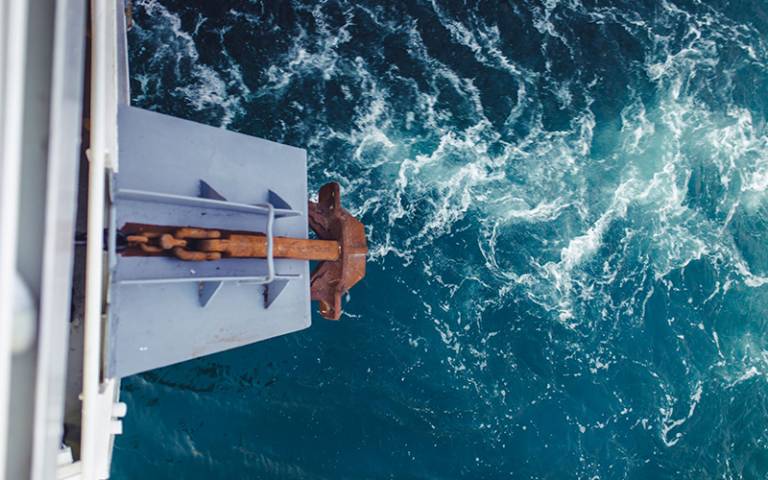Policy measures can ‘close the competitiveness gap’ aiding commercial viability of Net Zero shipping
18 January 2022
New study by UCL Energy Researchers suggests a multi-pronged policy approach can close the competitiveness gap between fossil and zero-emission fuels whilst enabling an equitable transition.

A new report by UCL Energy Researchers at UMAS for the Getting to Zero Coalition, a partnership between the Global Maritime Forum the Friends of Ocean Action, and the World Economic Forum analyses policy measures for closing the competitiveness gap between fossil fuels and zero-emission alternatives in shipping and how they could enable an equitable transition.
An average carbon price of just under $200 is required for shipping’s full decarbonisation, but the carbon price could be lowered if revenues are recycled within the sector.
The Initial IMO GHG Strategy places emphasis on fairness and equity considerations, which means that the viability of any IMO climate policy instrument depends to a large extent on how these considerations are taken into account and operationalised.
On this subject, Isabelle Rojon, Principal Consultant at UMAS said:
“Decarbonisation policy for shipping needs to be as much about equity and fairness as it is about climate change mitigation. Vast inequalities exist globally, many of which are worsening in the face of climate change. With careful policy design and use of carbon pricing revenues, we can ensure that maritime climate policies do not exacerbate these inequalities. Furthermore, embedding equity into policy measures will help secure the multilateral agreement that is urgently needed.”
The report explains which policy options could help close the competitiveness gap and enable an equitable transition and considers the policy options such as economic instruments, direct regulatory approaches, information programmes, voluntary action and national/regional measures. Economic instruments, or market-based measures (MBMs), are widely used by regulators to internalise the costs of pollution caused by economic activities, address market inefficiencies and decrease price differences between fossil fuels and alternatives.
Links:
- Read the report - Closing the Gap
- Closing the Gap report explainer from UMAS
- UMAS
- Shipping research at UCL Energy Institute
 Close
Close

